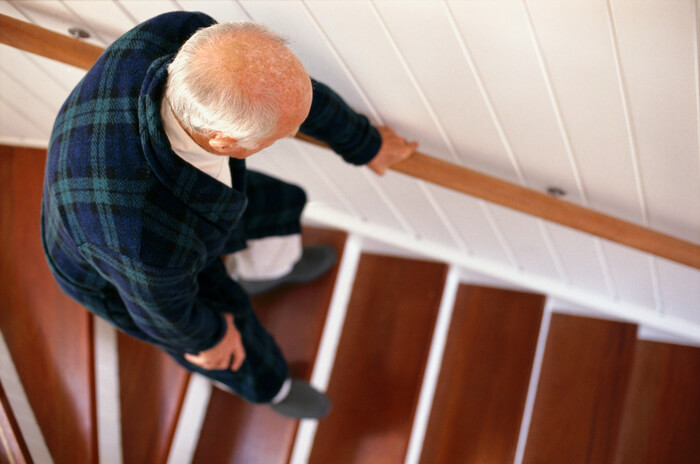Tips to Help Maintain Balance and Avoid Falls at Home and While Traveling
 Navigating your home and neighborhood may be familiar, but there’s still a chance you could take a misstep, lose your balance and fall. At least in familiar surroundings you are more aware of nearby resources, from an emergency contact to a doctor’s office or hospital if needed.
Navigating your home and neighborhood may be familiar, but there’s still a chance you could take a misstep, lose your balance and fall. At least in familiar surroundings you are more aware of nearby resources, from an emergency contact to a doctor’s office or hospital if needed.
But what happens if the fall takes place in an unfamiliar environment? Maybe you’re visiting family and friends in another town. Maybe you’re traveling abroad. What do you do in this situation? Let’s start with trying to avoid the fall in the first place. Here are some tips on how to help maintain stability anywhere.
How to help improve coordination
When we walk, we put one foot in front of the other, most of the time. Falling is a common concern, especially for those ages 65 and older. There are many factors that can increase a fall risk, including health issues, balance problems and medication side effects. However, even a healthy, well-coordinated individual can stumble. Taking the following steps can help prevent serious injury.
- Stay physically active. Regular exercise can help increase strength and flexibility. Activities such as yoga, Pilates and tai chi can also help improve balance and joints.
- Know your risks. Have your eyes, hearing and reflexes regularly tested and use doctor-prescribed aids when needed. Talk to a medical professional if any prescription or device results in uncomfortable side effects.
- Take care of yourself. Get enough sleep, limit imbibing alcohol and wear appropriate clothing – especially footwear – that can provide support on varied terrain.
- Speak up. Talk to a doctor or a loved one about any recent falls. This can indicate a treatable medical issue.
- Be aware of your surroundings. Take extra care if you must go out in bad weather. Use flashlights, handrails, ramps or other assistance when available. Avoid distractions, such as using your phone while walking.
These general tips can help sustain self-control anywhere. If you are about to travel to a new place, there are a few more steps to consider.
Keeping composure on the road
You may not have to travel far to find yourself in uncharted territory. However, with a little planning, you can help keep yourself on your feet.
- Research your destination. Become familiar with the local risks, including the amount of walking on tours and the type of transportation and lodging available.
- Schedule a check-up. Visit your doctor to discuss your itinerary and get recommended vaccinations and/or medications.
- Prepare for emergencies. Share your itinerary, hotel information, and emergency contacts with someone you trust at home. Save the contact information for the medical facility nearest your destination.
- Maintain your health. Frequently wash or sanitize hands, stay hydrated and keep active, especially on long flights, to help prevent blood clots.
- Trust your instincts. If a situation feels unsafe, have a backup plan.
Having a plan and being prepared are both favorable to your well-being. But there’s still the possibility of a fall. Knowing what to do next is just as important as prevention.
What to do if you fall
A sudden tumble can be upsetting in any situation. Try to stay calm and keep the following in mind:
- Breathe. Try to relax and remain still on the ground for a few moments to help get over any initial shock. Plus, getting up too quickly or in the wrong way could make an injury worse.
- Mental body scan. Try to determine if and where you are hurt.
- Slowly move to a sturdy surface. If you think you can get up, crawl to a chair. If it hurts, stay put.
- Get help. Keep a charged phone or medical alert system with you to contact emergency services.
Seek medical attention as soon as possible to diagnose and treat any issues or to rule out other potential injuries. Experiencing a fall may sully a memorable travel experience but ignoring it can lead to complications long after your trip.
Source: National Institutes of Health
